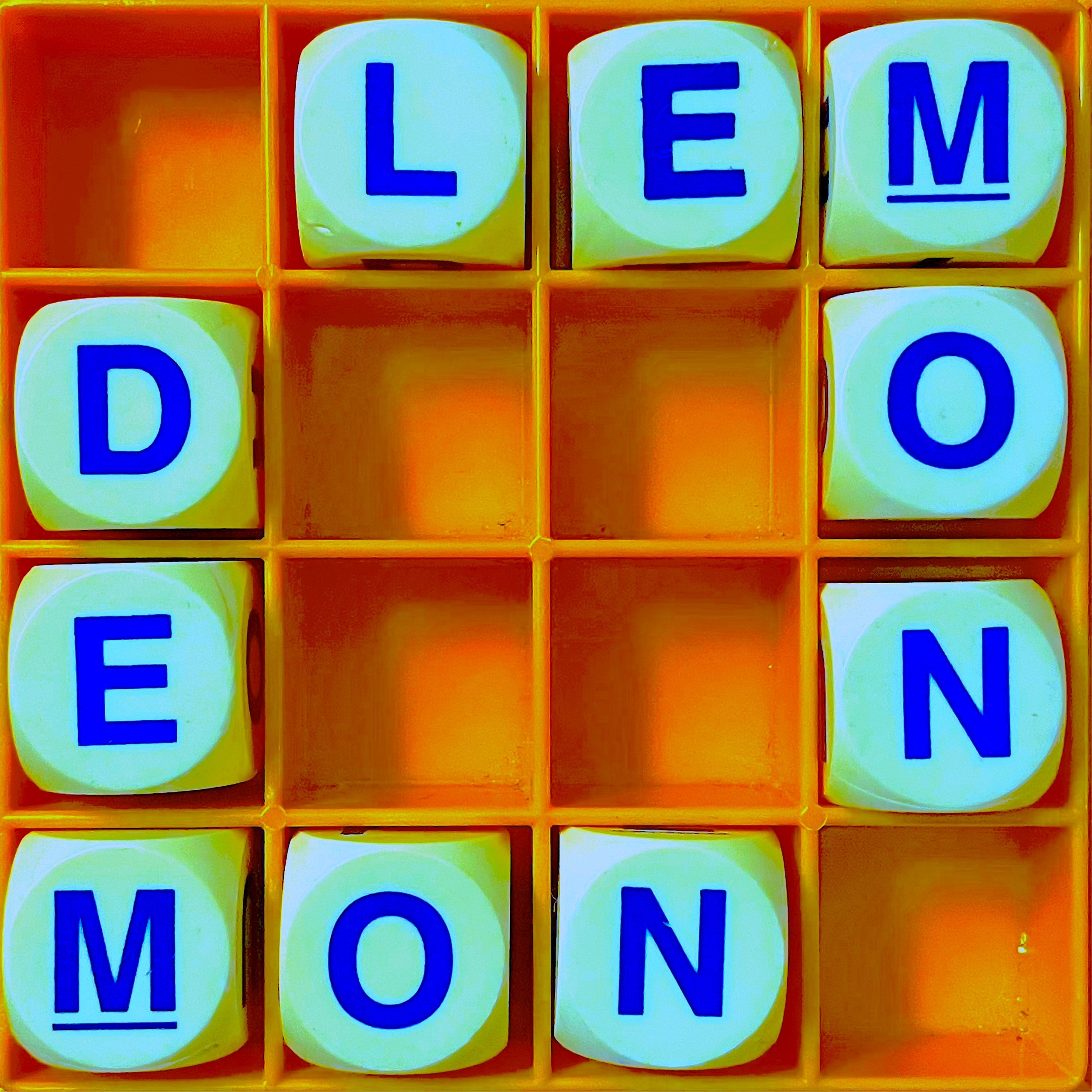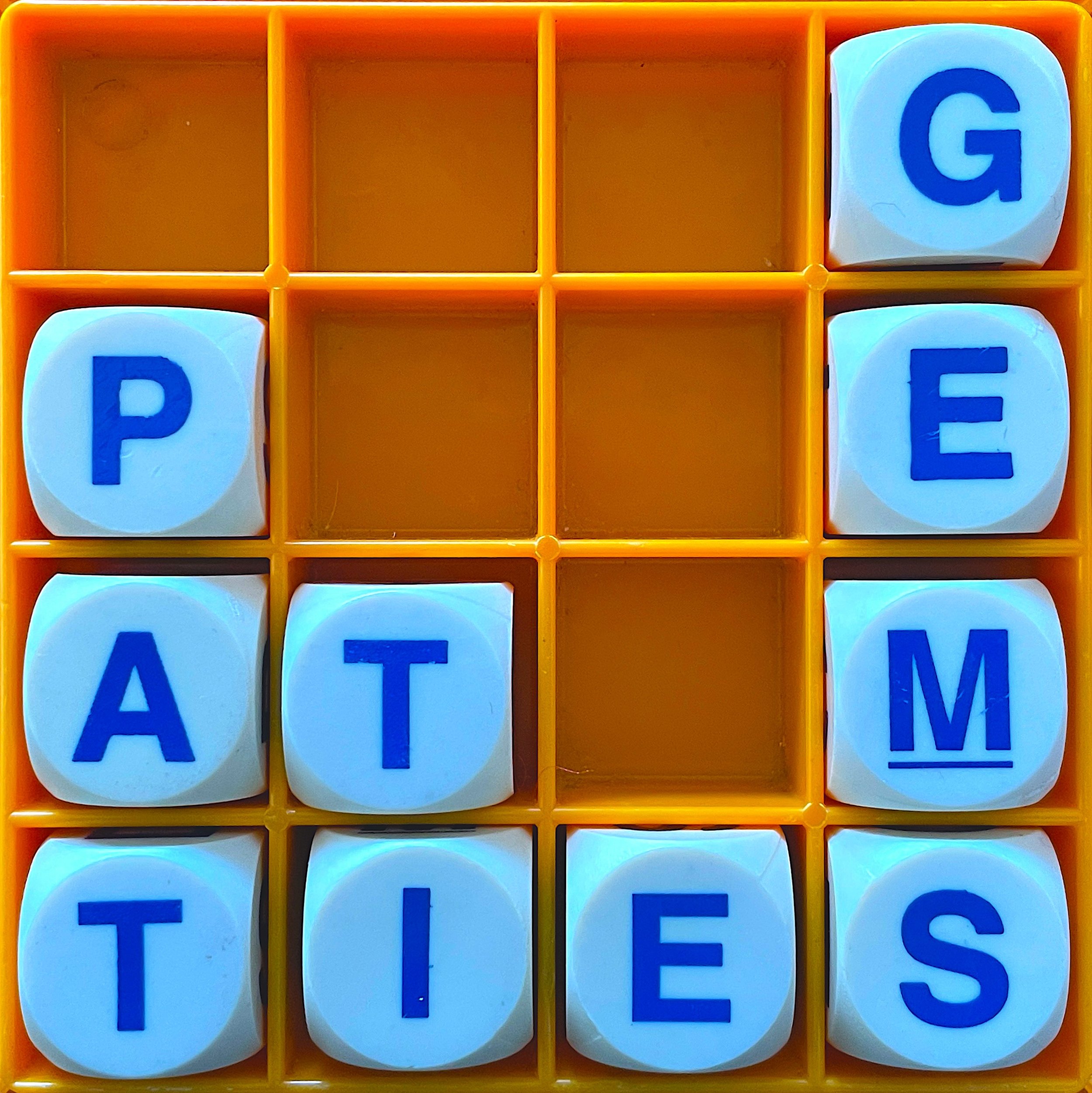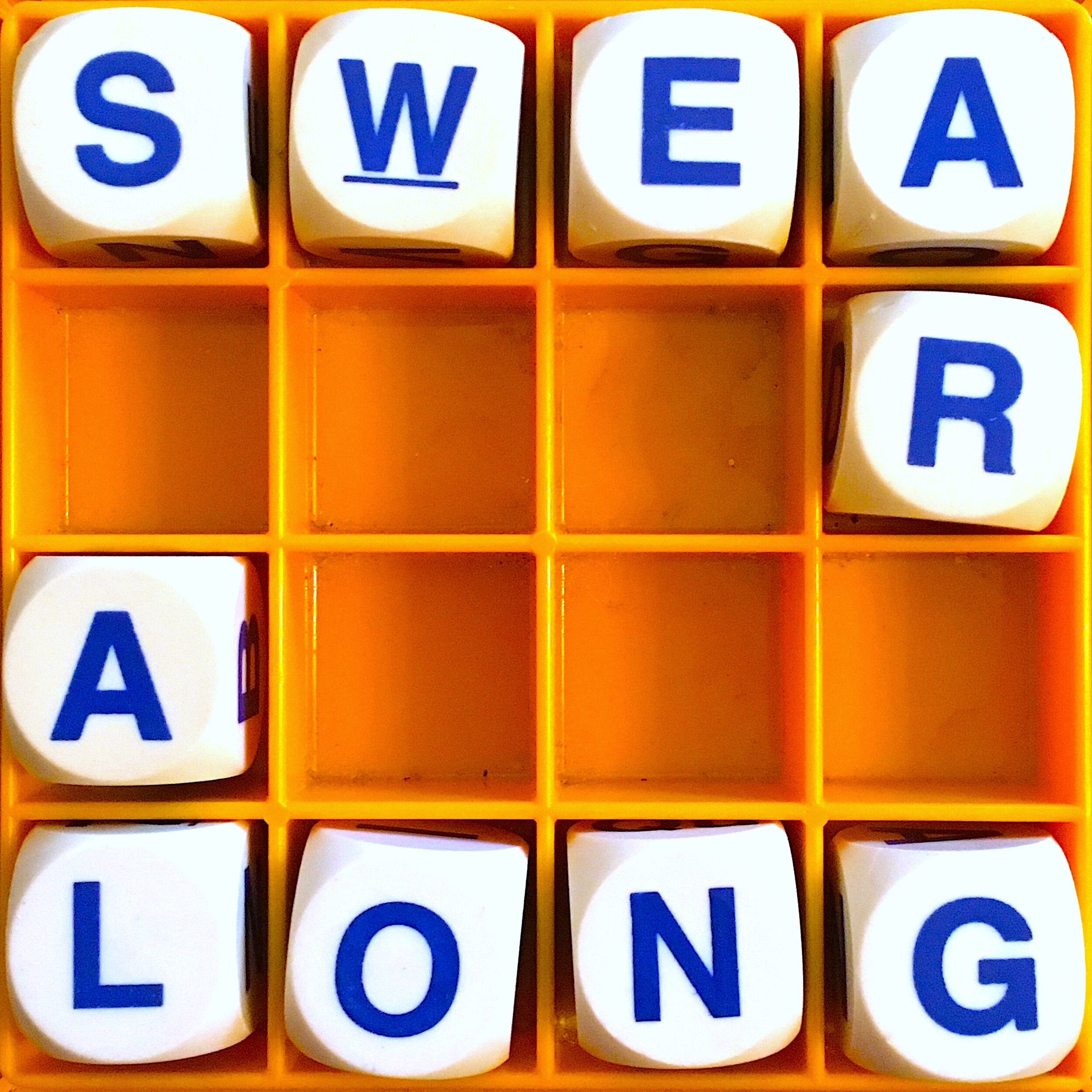ISHBEL McFARLANE: “You crap so much that you sunk a ship you were on.”
HZ: I’m gonna use that.
Allusionist 199. 199 ideas that I hadn't made into podcasts yet - transcript
This is the 199th episode of the show, and since before this show began, so for nearly a decade, I have been jotting down ideas in two documents - one for short ideas, one for long ideas. There are always more ideas than I have time and ability to make podcasts about, so now the documents are altogether 66 pages long and growing every day. So in this episode, you’re going to hear 199 ideas that I wanted to put into the podcast and haven’t yet.
Read moreAllusionist 193 Word Play part 3: Lemon Demon transcript
AJ JACOBS: Anagrams played a part in a trial, sort of a witch trial in the 1600s in the UK. And it was a woman who was put on trial for claiming that she was a prophet. Part of her proof was that if you rearrange the letters in her name - her name was Eleanor Davies - if you rearrange it, then it says, ‘Reveal, O Daniel’, as in the prophet Daniel. I don't believe that that was proof she was a prophet. They came down on her hard in the trial, so they said, “If you rearrange” - her married name was Dame Eleanor Davies - “and you rearrange those letters, it spells ‘Never So Mad A Lady;.” So like, “she's so crazy.” So that was how she was convicted. And by the way, that was when anagrams were easier, because there were so many spellings.
Read moreAllusionist 185 Gems and Patties transcript
I've got a doctorate in this, and I have got dwarfism, but there'll always be an average-sized person whose only recollection of dwarfism is through Snow White, and yet somehow they'll construct themselves as the expert, and tell you it's not offensive or, “No, you've got that wrong.”
HZ: Also by having it on bags of sweets, that's kind of the ultimate “It's okay to say this in normal conversation”.
ERIN PRITCHARD: Yeah. But you do get through to some people, some people go, “I never realised that. I never knew that.”
Read moreAllusionist 168 Debuts transcript
HZ: The work that RFSU does has included, over the past three decades, coming up with new terms, to fill gaps in the vocabulary or provide more options for talking about sex and bodies.
KALLE ROCKLINGER: Sometimes it's to highlight or make something visible that's not been really talked about. Sometimes it's to change norms in society in some ways, and sometimes it's been sort of a really strategic choice for us in our political work to refuse a certain term or way of describing things, to tell another story, so to speak.
Read moreAllusionist 145 Parents transcript
FREDDY McCONNELL: A lot of the time when you hear about trans and non binary inclusion in pregnancy care, the idea is that all of this inclusive stuff is additive. It's not meant to replace language that works for the vast majority of people who are pregnant, which are cis women; it's just this is the language you use if and when you do encounter someone who's trans.
Read moreAllusionist 133 Cake Is Mightier Than The Sword transcript
JUAN PALACIOS: So as a funny, but actually as a political comment, a political statement, they start naming the pastries with these names. Who would they attack? The police; the army; the church: the structures of power that they were trying to take down. Hence the names. It's funny but it was more than that. It's a political statement.
MADI LANG: It really characterizes the people. Because I don't think they thought they were going to start a revolution. They were just being kind of disrespectful in a very open, normal way, like, what if instead of calling it pizza they called it "the fuck you"?
Allusionist 125 Swearalong Quiz transcript
Today, we’re going to destress, let off some steam, with the Swearlusionist Swearalong quiz.
Read moreAllusionist 123 Celebrity transcript
GREG JENNER: If we look back at classical sources, where do we get fame from? What does it mean? What's the origin point? The Greeks had a goddess called Pheme, and she is a winged, beautiful goddess, with a trumpet. She parps a trumpet. And that is your name being sung into the heavens through the trumpet. So it's a nice thing. It's good. You get fame and it means people going to hear about you. But when you get to the Romans, and we get one of the most famous Roman writers, Virgil, in his Aeneid, he talks about Fama, where we get our word 'fame' from. That derives from the verb 'fari', meaning to speak or gossip about someone. And Virgil's Fama is not a beautiful goddess with wings and a parping trumpet; she's basically Godzilla. She's a terrifying, massive monster who stalks the land and she's covered with eyes and ears and tongues, and she grows in scale the more people that are gossiping about you. So the more you're being chatted about or gossiped about, the larger this monster becomes until she's vanishing into the clouds and she never sleeps. And she hunts you down. And Virgil's version of fame is predatory. It's terrifying. It's this enormous force of nature that comes for you, and there's nothing you can do about it.
Read moreAllusionist 116: My Dad Excavated a Porno transcript
HZ: The Victorians really did a number on people. I feel like we're still unpicking Victorian attitudes.
KATE LISTER: Yes, we are. I mean, we're still very much the children of the Victorians, and they're a fascinating bunch, the Victorians. No generation, at no point in history, has sex been successfully repressed, ever. It just doesn't happen. But what you have is really strict social morality, conditioning and mores and constructs and power dynamics around sex that dictate what we are and what we're not supposed to be doing. And outward facing, they were so repressed and polite society and so offended by everything even remotely to do with sex, to the point of where they wouldn't say the word 'trousers' because they thought they were too rude. They were 'sit down upons'.
Read moreAllusionist 98. Alter Ego - transcript
Today: three pieces about alter egos, when your name - the words by which the world knows you - is replaced by another for particular purposes.
How did John Doe come to be the name for a man, alive or dead, identity unknown or concealed in a legal matter? Strap in for a whirlwind ride into some frankly batshit centuries-old English law.
At their first bout of the 2019 season, the London Roller Girls talk about how they chose their roller derby names - or why they chose to get rid of one.
The 1930s and 40s were a golden age for detective fiction, which was also very popular and lucrative. Yet writing it was disreputable enough for authors to hide behind pseudonyms.
Allusionist 87. Name v Law - transcript
JÓN GNARR: I had a daughter in 92, and she was named Camilla after her grandmother, it was Camilla with a C, spelled with a C. And so when I got the confirmation note from the National Registry, where they tell you that your child is now named something in the registry, they had spelled her name with a K. It's confirmed that the child Kamilla Jónssdóttir, blah blah blah. And I called them, because it was spelled with a C, and I just wanted to tell them it was a misunderstanding, my daughter's name is spelled with a C and she said yeah, wait, and I waited on the line and then she came back and she said no, it's no misunderstanding: C has been banned in the Icelandic alphabet.
HZ: C has been banned??
JÓN GNARR: C was banned. Yeah.
Allusionist 81. Shark Week - transcript
HZ: There used to be a term ‘goatmilker’, it was a bird that was believed to suck milk from goats at night, but it was also slang for sex workers, and therefore slang for vulvas.
HRISHIKESH HIRWAY: Wow.
HZ: Licentious men were known as ‘goatmilkers’, because they were frequenting these sex workers in the 17th century when this word was around.
HRISHIKESH HIRWAY: Again, not enough poetry in that for me.
HZ: Too vulgar for you?
HRISHIKESH HIRWAY: Yes, for my delicate sensibilities.
Allusionist 79. Queer - transcript
AMY SUEYOSHI: I see 'queer' as an umbrella term, as a political call for revolution as well as unity across different groups of people.
JONATHAN VAN NESS: I think of it definitely with positive and loving energy around it, I don’t think of it as an insult at all; growing up, I would have thought of it more as an insult. I think it was in 2015 when we got marriage equality, and the media, especially the LGBTQ+ media, began to use it as an umbrella term, something we could all be part of. So I think I got the cue from media to know that it was a gorgeous amazing word, one where we’re taking the love back and it wasn’t one to be offended by any more.
KATIE MINGLE: I haven’t always loved the term for myself, because it feels like an umbrella term that you can use if you’re gay and in a relationship with someone of the same sex, or you can use if you’re a basically straight couple who occasionally has a threesome with someone. That’s what ‘queer’ has come to mean: anyone who’s not inside the norm.
AMY SUEYOSHI: I think it's rejecting things like patriarchy and heteronormativity, mandates of morality. So not just to be able to keep things gray or to be postmodern, post category, but instead rather to call for a true revolution of the way we see the world, the way we categorize the world. So it's not just about LGBT rights per se but it's about creating a world that's more respectful of equity and thinks about diversity as a plus and values different ideas as a side of radical change rather than fear.
KATIE HERZOG: I sort of hate it. It’s too broad.
TOBIN LOW: It's so useful. I mean especially as there is this proliferation of identities that people can call themselves and identify with and really claim, it's a great way of just sort of acknowledging that it's all in the umbrella and that it's all valid; it's just like a way of acknowledging the validity of all the things, which I think is great.
ERIC MARCUS: This word has tortured me.
Read more













